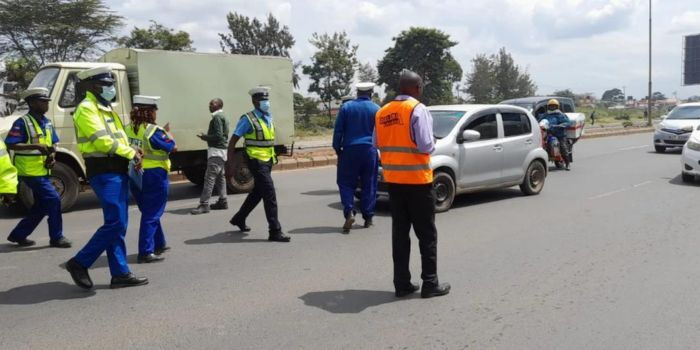The Kenya National Highways Authority (KeNHA), in conjunction with the National Transport and Safety Authority (NTSA), has announced a three-day nationwide campaign on the roads.
In a statement by KeNHA on Monday, April 14, the nationwide exercise centered on road safety will target two vehicles, including Public Service Vehicles (PSVs).
Other vehicles being targeted are Heavy Commercial Vehicles (HCVs).
KeNHA detailed that the exercise began on Monday and was kickstarted in major parts of the country.
It was explained that the campaign was necessary given the rise in accidents across the country.
Read More
.png)
"The exercise kicked off today in Eldoret and will continue in other parts of the country, including Malaba, Busia, Kisumu, Nyeri, and Meru," read the statement in part.
"The campaign targets drivers of Heavy Commercial Vehicles (HCVs) and Public Service Vehicles (PSVs), aiming to engage high-risk road users, promote responsible behaviour, and enhance collaboration in the dissemination of road safety messages, in response to the recent rise in road crashes."
Notably, the campaign comes at a time when most roads will experience increased travel due to the Easter festivities.
On the other hand, there has been a rise in traffic accidents across the country, with many Kenyans losing their lives.
In response, Transport CS Davis Chirchir faulted motorists for irresponsible behaviour, such as drunk driving.
Consequently, he announced that new regulations would be implemented to deal with the reckless behaviour of motorists on the roads.
“Any person who, when driving or attempting to drive or in charge of a motor vehicle on a road or other public place, is under the influence of an alcoholic drink or a drug beyond the prescribed limits shall be guilty of an offence and liable to a fine of up to Ksh 100,000 (one hundred thousand) or to imprisonment for a term not exceeding two years or to both,” Chirchir noted in a statement.






